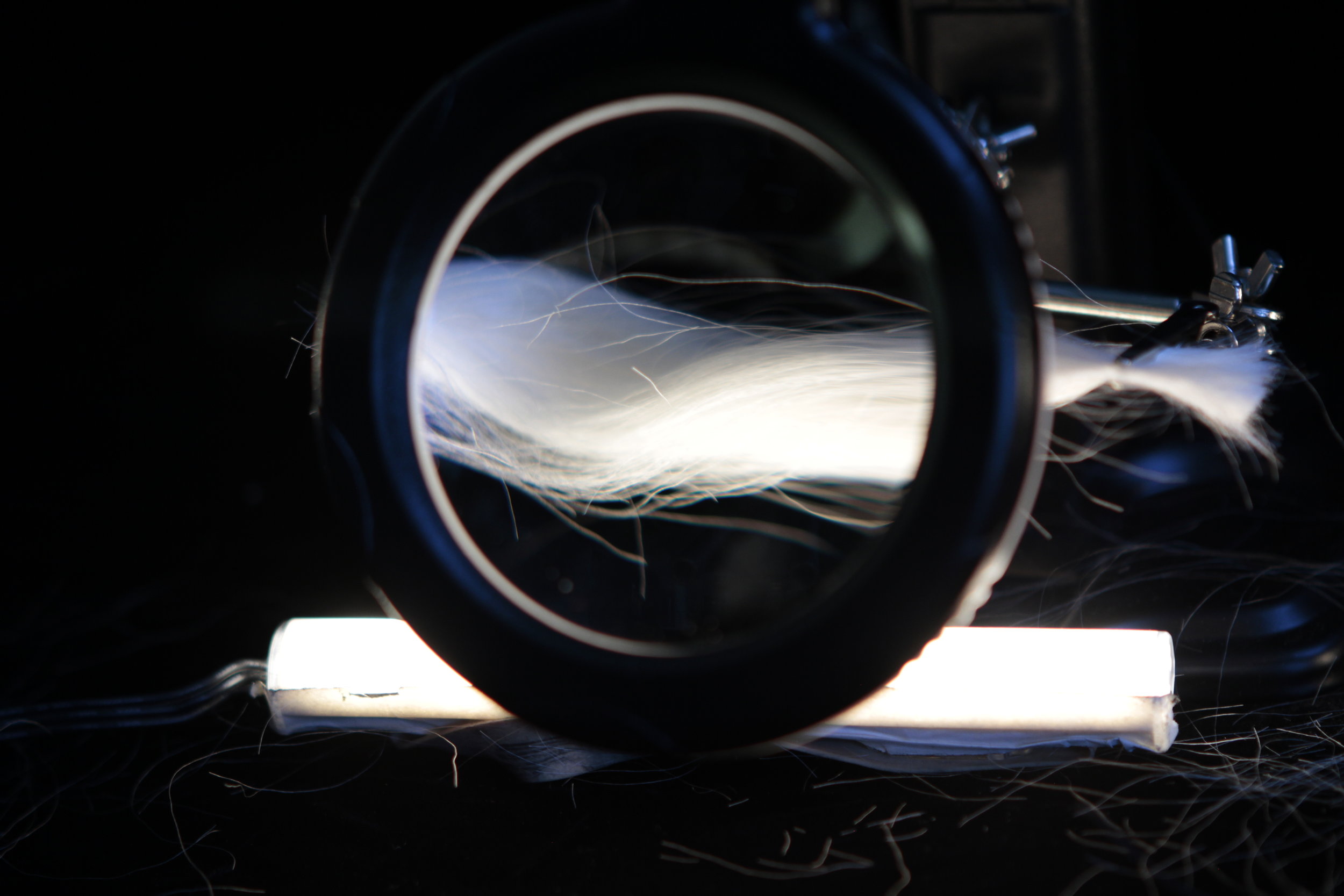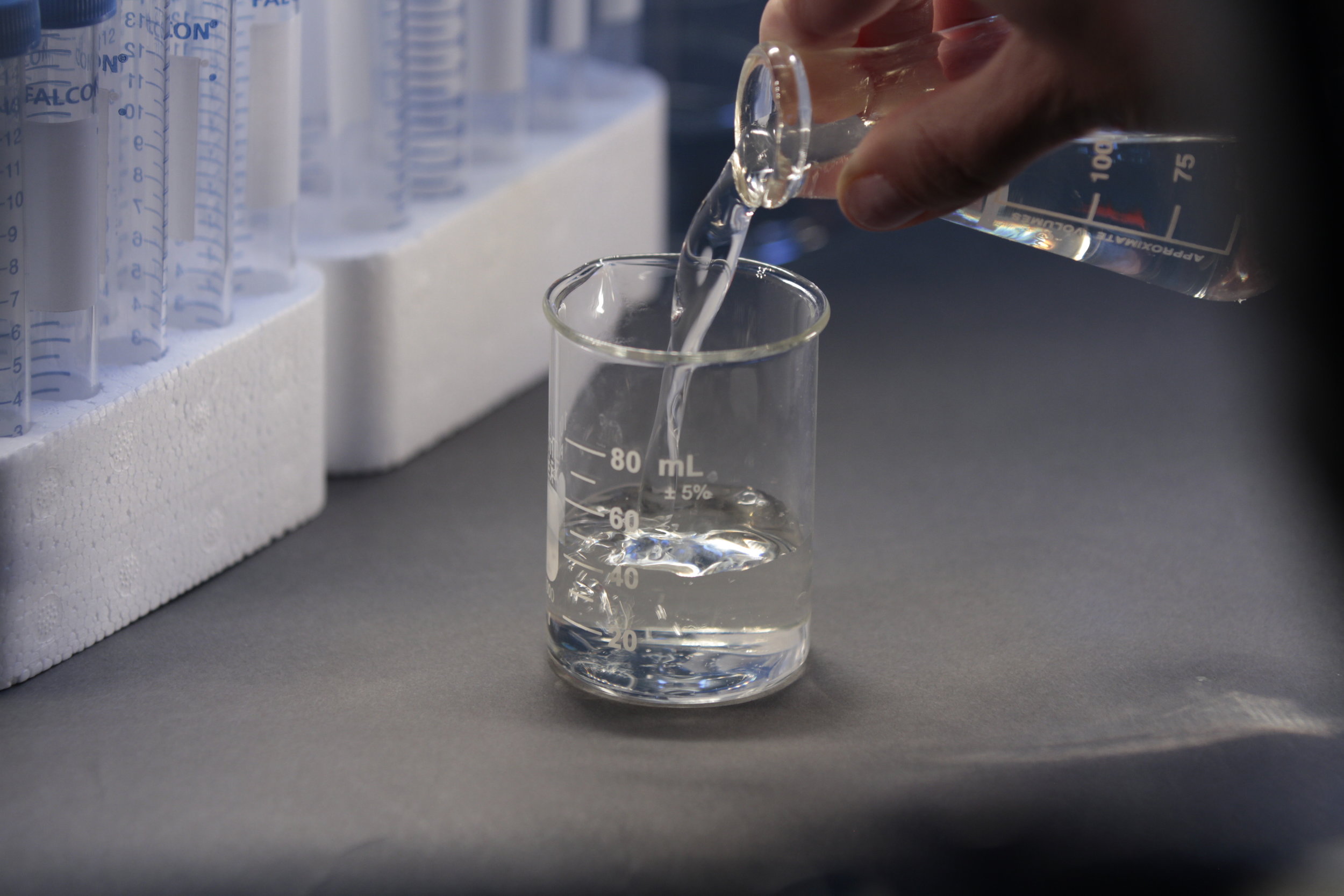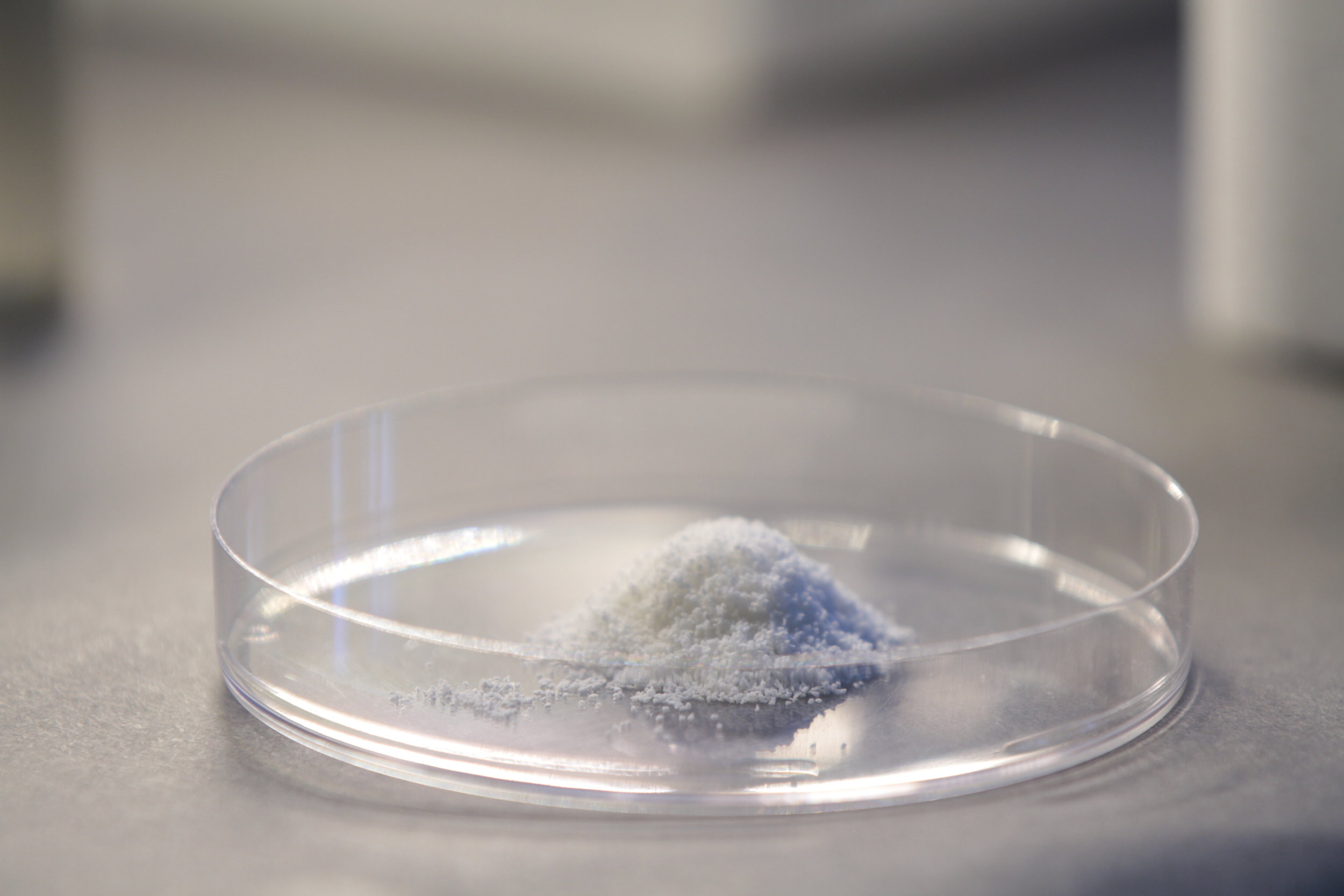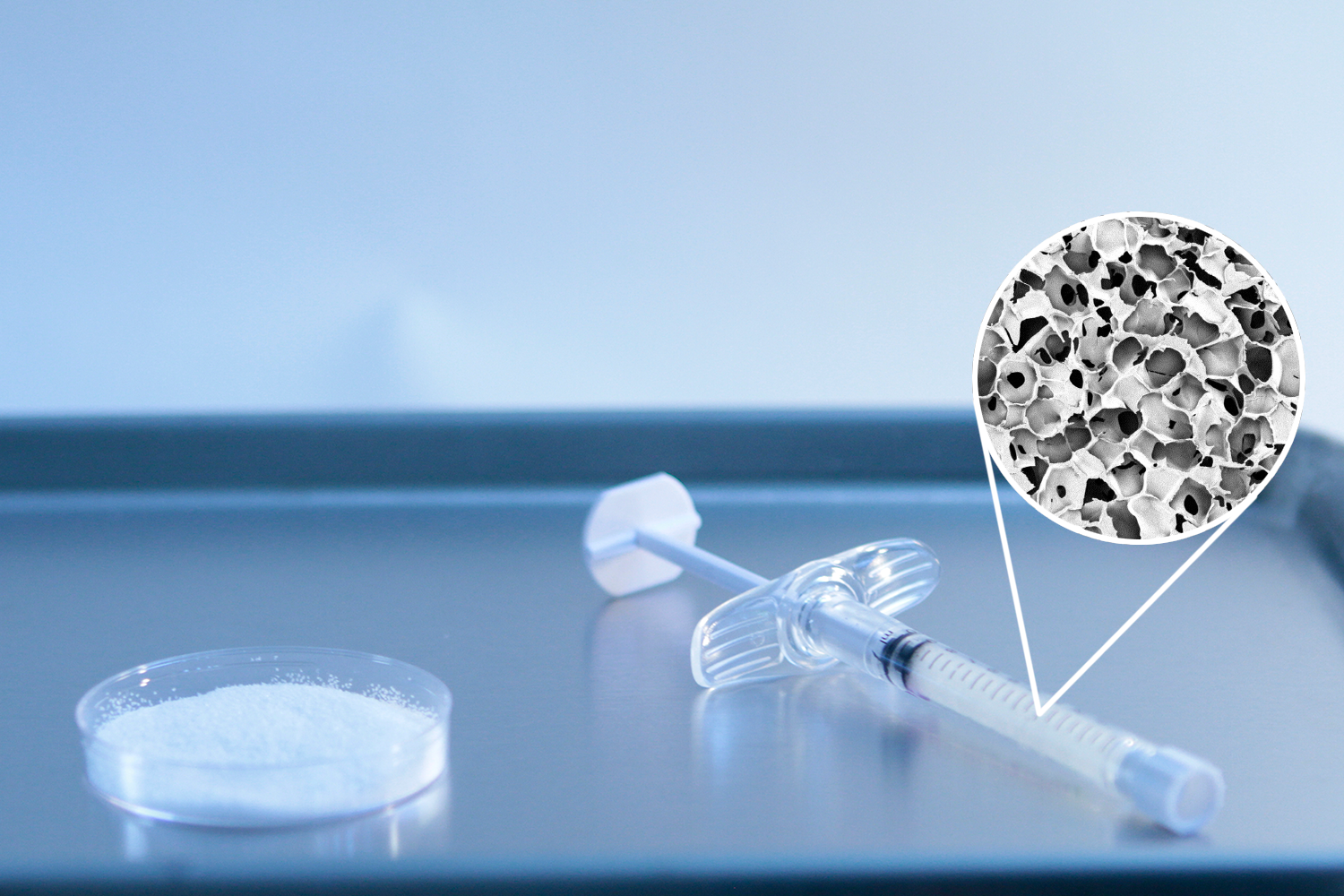Sofregen is developing a wide-ranging portfolio of biomaterials built on our proprietary silk protein platform. The goal is to develop and introduce functional advances over existing tissue support materials and techniques. Our breakthrough silk-engineered products address unmet needs in challenging applications requiring robust and durable tissue regeneration — from surgical procedures to aesthetics.
Silk Protein: The Power and Promise
Our silk protein — also known as fibroin — possesses unique and highly beneficial properties for tissue support and regeneration. It provides strength and facilitates tissue ingrowth as it slowly resorbs in the body. As a structural protein, silk fibroin is highly compatible with human tissue: It is the only naturally occurring biomaterial that does not contain surface epitopes, which contribute to undesirable cellular reactions. This makes it an ideal cellular scaffold, distinguished from most other structural proteins used in tissue support and regeneration, such as collagen, hyaluronic acid, elastin, and keratin.
“Very simply, silk supports cellular infiltration and proliferation.””
“Very simply, silk supports cellular infiltration and proliferation. Cells just like to go near it. And any cell type will grow into it,” says David Kaplan, Ph.D., Chair of Tufts University’s Department of Biomedical Engineering, about silk protein biomaterials.
SERI® Surgical Scaffold comprises pure silk protein fibers carefully processed to remove any surface proteins from the material, making it the ideal biological scaffold for collagen generation and tissue remodeling in the body.
Sofregen’s pipeline technology — which extends silk research beyond the silk fiber — uses proprietary processing techniques to transform silk fibers into liquid silk.
Once in liquid form, silk protein can be further transformed into pure silk protein particles that are stable in an aqueous hydrogel for injection into the body.
These versatile particles are highly porous, elastic and designed to mimic the biomechanics of the surrounding soft tissue, forming a platform for targeted collagen production in a variety of aesthetic and soft-tissue reconstruction applications.
The Path to an Injectable Silk Protein Filler
Sofregen’s proprietary process produces porous silk particles carefully engineered to match the biomechanics of soft tissue, which makes them the ideal foundation for an injectable filler.




Pre-clinical studies show that when a suspension of these particles is injected through a small gauge needle, it acts to facilitate durable cellular ingrowth and collagen production – while slowly bioresorbing over time.
Sofregen continues to explore novel ways to deliver this formulation to other parts of the body as well, targeting soft tissue augmentation and collagen production.
Transforming Weakness into Strength
Sofregen’s products — both marketed and those in development — all follow a similar restorative process. As the silk-based biomaterial degrades and resorbs through the body’s natural healing processes, healthy supportive tissue is restored. This chart depicts the process of soft tissue restoration with SERI® Surgical Scaffold.



